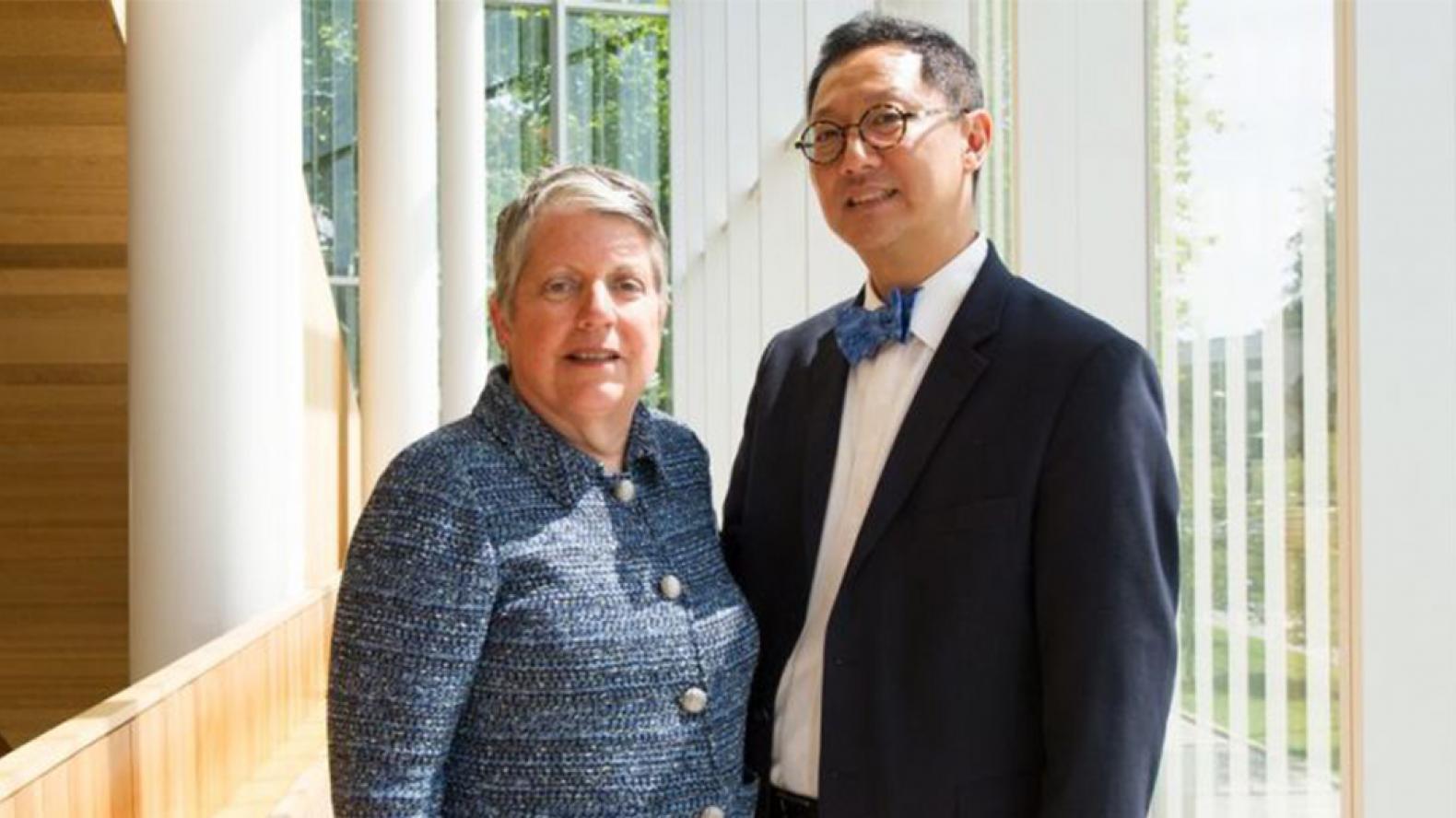
This article by Zak Vescera originally appeared in The Vancouver Sun on 23 July 2019.
North American universities are pledging to pick up their countries’ slack on climate change.
The 20 members of the University Climate Change Coalition, or UC3, announced a platform of fight climate change during its inaugural conference at UBC on Tuesday, citing the severe consequences of temperatures rising 1.5 C or more above pre-industrial levels.
The universities pledge to accelerate research, lower on-campus emissions and push for progressive climate policy at all levels of government.
“We have, frankly, the brainpower and the talent to take on some of the world’s great challenges,” said Janet Napolitano, president of the University of California. She says finding solutions to climate change lies at an intersection of “research, education and public service” that universities are naturally suited to tackle.
It’s the latest in a movement of smaller actors who have stepped up emissions-reduction efforts since President Donald Trump withdrew the United States from the 2015 Paris climate accord.
Earlier this month, 7,000 colleges and universities declared a climate crisis, pledging to eliminate on-campus emissions by 2050.
“Universities and cities are leading the charge on climate action and collaborating to magnify that impact and scale it across big cities and regions,” said former Vancouver mayor Gregor Robertson, who was one of many former and present municipal leaders at the conference. “There’s a steadier commitment to science and evidence-based action at universities that’s unhindered by volatile politics.”
Napolitano and UBC President Santa Ono say universities, which often have discretion over utilities and planning on their campuses, can act as “petri dishes” for projects that can then be scaled to the city level.
UBC has reduced on-campus greenhouse gas emissions by over 30 per cent since 2007 even as the student population has risen by 32 per cent. The University of California — which has about 250,000 students on 10 campuses — has been a U.S. leader in converting to solar energy.
The end of the conference coincided with an announcement from Natural Resources Minister Amarjeet Sohi of $5.8 million in federal funding for on-campus electric vehicle and sustainable housing projects, which he said would have been much more complicated to introduce in a normal municipality because of regulatory barriers.
Ono acknowledges scaling those programs to cities and larger areas can be challenging, especially in regions where such measures are politically unpopular.
Ono said UBC has had the support first of Robertson and now of the current Vancouver mayor, Kennedy Stewart. “It’s clear that’s not the case elsewhere in our nation and south of the border.”
Napolitano, who was the American secretary of homeland security under president Barack Obama, says climate change is the “top of the list” in terms of national security threats and poses huge risks and costs to governments.
She says universities have a role in urging governments to take climate change more seriously — so long as they don’t take political sides.
“I think leaders of great public institutions should take positions on great public questions,” she said. “But need to do so with an ‘appropriateness’ lens.”
Napolitano and Ono have faced criticism for their approach to climate-friendly investment in their own backyards.
This week, the University of California’s academic senate voted to call on the school to divest its roughly $12-billion endowment from fossil fuel companies.
At a panel Tuesday, Ono was met with a protest from campus group UBC C350, which has called on UBC to divest fully from fossil fuels.
Napolitano says the schools have invested over $800 million in clean energy projects and are reducing overall fossil fuel investment.
Ono says pressure from students has pushed UBC to accelerate its efforts to be carbon-neutral and expand efforts like a sustainable investment pathway the university introduced two years ago, which currently shows higher financial returns than the general endowment.
“In many cases, they are pushing us to be more aggressive and more ambitious,” said Ono. “That kind of internal challenge is something that’s very helpful.”